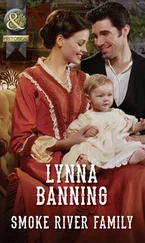“For a while my husband came to believe that the answer to Smoke was surgical. That Smoke could be cut off at the root. Not by excising the whole liver, naturally, merely the gland itself. But there was no way he could operate on himself.”
Sick now, Charlie wrestles with Lady Naylor, trying to withdraw his hand. But her grip is firm, pressing his fingers into the scar.
“Please understand that I accepted willingly. You see, I love my husband. More than life itself.” At last she lets Charlie go, watches him jump back and cradle his hand as though it were cut. “And he loved me. Which is to say, he did not go through with it in the end. He opened me up and sewed me shut again. In any case, it would not have worked. Aschenstedt sent us a study. From Romania. A lord there made extensive experiments on his peasants. They either died or continued smoking. All twenty-seven of them.”
Charlie watches her button up her dress again. This time he does not fight his staring. His sense of modesty is gone. All he can think of is the ridge of her scar. His breathing is loud, as though he’s been running; pins and needles down his back.
“Why show me?” he manages at last.
“I need you to understand, Mr. Cooper. What people are willing to do, in the cause of virtue. So you will help us, when the time comes.”
He grapples with this, finds it too large, her revolution, unfathomable. The stakes he understands are smaller. They dwell next door.
“Do you promise that the child will be unharmed?” Charlie asks and surprises himself by the firmness of his voice.
“I can if you like. It is the truth. But you won’t believe me. Why would you? Adults have been lying to you all your life.”
She rises, reaches past him, opens the door, standing so close he sees each tired wrinkle round her eyes.
“And tell me this, Mr. Cooper: what is he to you, this boy next door? How many boys like him have suffered and perished throughout your life without your taking the slightest notice? Back in his jungle, or on one of our royal plantations, picking precious flowers that we import by the ton?”
Before Charlie can answer, she has bent forward, put her lips to his ear.
“Talk to my Livia, Charlie. I cannot reach her. Tell her about our conversation. Tell her I am glad she is. . But you will know what to say.”
“I’m afraid your daughter and I no longer speak.”
“Don’t you? Oh, what a child you are, Mr. Cooper! What a perfectly charming child.”
ф
Charlie tells the others about his conversation later, sitting once again in the draughty room he shares with Thomas. It is cold in there, cold enough that his hands and feet grow numb, and their only light is a sliver of silvery sky that outlines the broken shutters. As he tells them of the scar, of his hands on Lady Naylor’s body, he is glad of the dark, glad he cannot see Livia’s expression nor she the rush of blood that momentarily heats his face.
“Smoke is grown in the dark of our livers,” Thomas sums it up drily once Charlie is finished. “Swinburne would not like it. His lot would be done if it were known.”
Livia disagrees. “Why? It does not change anything. Smoke is what it always was: the visible manifestation of vice. How stupid to cover up a truth that does not matter.”
Charlie can hear Thomas shift in response. A shrug, a wave of the arm. How well they know each other, precisely in the dark. For a split second they are back in the dormitory, swapping confidences.
“In any case we learned one thing today,” Thomas says after a while. “Seventy-two hours. That’s when something starts changing in the boy. Whatever it is, they want it to happen, they need it. Which means we have three days to learn the truth. It’s got to do with the sewers. We must go and have a look.”
Charlie looks into himself and finds he agrees. Only: “We don’t know where to go. The sewers, yes. But we don’t even know how to get in.”
“We need the blueprint.”
“She will notice if we steal it. And the plan is too large to copy.”
“Not if we only mark the entrances. And the bits where the two plans differ. The secret passages. The bits Sebastian must have built on the sly.”
“That’s clever!”
“It was Livia’s idea.”
In the dark Charlie can hear her rise. It’s like he has caught them at something: putting their heads together. Plotting the future.
“Good night,” she calls from the door, sounding agitated, enraged.
“Good night,” they answer, then huddle close against the cold.
When sleep comes, it comes with dreams. A black-clad figure, shadowed by a dog.
Charlie never learns whether it is Julius or Renfrew.
Livia storms in as I am getting ready for bed. I have loosened my hair and sit, on the room’s one rickety chair, combing it. Our hosts have no mirror and it is odd that I should feel the loss of my reflection so keenly. The hair is tangled, greasy with city Soot; the brush soon bristling like a cat in a storm. It would be nice to take a bath before Sebastian and I set off to change the world.
Livia, I am pleased to say, is in a temper. Oh, there remain signs of the nun poking through her demeanour. My long-suffering daughter shouldering the burden of her needling mother. Mostly though she is fuming, stands with her fists buried in her hips.
“You look,” I say into the breathlessness of her anger, “ridiculous in trousers. Here, I had Sebastian buy me some dresses. You can have the green one. It is a little short on me.”
She ignores my words entirely, snorts back the Smoke that’s crept out of one nostril.
“You talked to Charlie,” she manages at last. “You took your clothes off!”
“Is it that which brings you here? You are upset about my lack of decorum. But there is more to it, isn’t there? You are jealous. Jealous of your poor spent mother. It is as bad as that, then.”
“I don’t know what you are talking about.”
I study her, feel the urge to touch her, offer peace. But it does not belong to the vocabulary of our relationship, and at any rate I am rather enjoying her loss of control. She has been prim with me for far too long.
“Poor Livia,” I say. “I saw it the moment Charlie greeted you and Thomas at the door: your whole little romance. You had convinced yourself that you had betrayed him, or some such thing. That you had shifted allegiances, once and for all, to your eternal shame. And how you scowled at him: like a fishwife at a customer. But all the same your heart leapt at the sight. Charlie — alive and in one piece! Or perhaps it wasn’t your heart so much as another organ.”
My daughter flushes, underlines her words with Smoke.
“Don’t be common, Mother!”
“Common? What do you think love is? Sonnets and a wedding ring? Perhaps it is time we had a conversation about flowers and bees.”
She flinches, seems ready to launch herself at me, this jeering heckler of her heartache. It shames me, her pain, and it occurs to me that I am afraid of my daughter, afraid of her disapproval of my choices and plans; that I’d rather have her hate me for my coldness than judge my motives and find them wanting. “I have lost my conscience,” I once wrote to Sebastian in one of those letters that prepared the way to our partnership. But it appears I have merely sent it off to boarding school. Now it has come to call in dirty trousers.
I try an approach. Rise from the chair, take a step, careful and measured, and watch her withdraw. Another pair of steps — first mine, then hers — press her up against the wall. She has changed during the week and a half I have feared for her, grown prettier, both more confident and more vulnerable. I see my own face in hers, just a few years older, the day my father told me that I was to wed. It softens me.
Читать дальше












